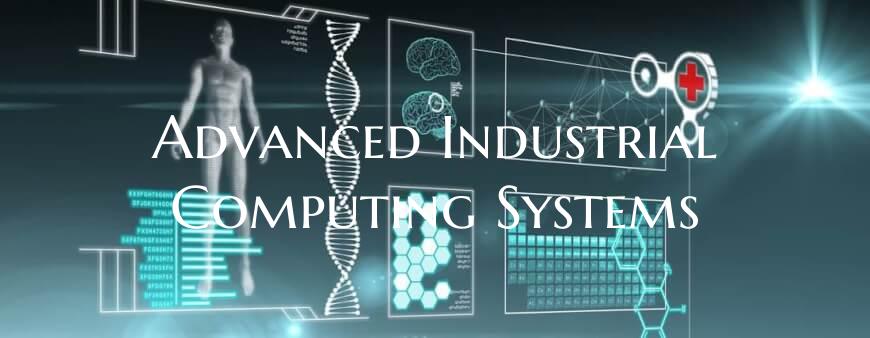Advanced Industrial Computing Systems
In today's rapidly evolving industrial landscape, the role of advanced computing systems in optimizing processes and enhancing productivity cannot be overstated. Advanced industrial computing systems represent a sophisticated integration of hardware, software, and networking technologies tailored to meet the unique demands of modern industrial environments. These systems leverage cutting-edge technologies such as artificial intelligence, machine learning, Internet of Things (IoT), and big data analytics to deliver unprecedented levels of efficiency, reliability, and flexibility.
Key Components of Advanced Industrial Computing Systems:
1. High-Performance Computing (HPC): Advanced industrial computing systems often employ HPC solutions to tackle complex computational tasks with speed and precision. HPC clusters enable real-time simulations, modeling, and analysis, empowering industrial operations to make data-driven decisions swiftly.
2. Industrial Internet of Things (IIoT): IIoT forms the backbone of advanced industrial computing systems by connecting a multitude of smart sensors, devices, and equipment across the industrial ecosystem. This interconnected network facilitates seamless data collection, monitoring, and control, enabling predictive maintenance, remote operation, and optimized asset utilization.
3. Machine Learning and AI: By incorporating machine learning algorithms and artificial intelligence capabilities, advanced industrial computing systems can autonomously analyze vast datasets to identify patterns, anomalies, and optimization opportunities. These intelligent systems adapt and learn from the data they process, continuously improving operational processes and asset performance.
4. Real-Time Data Analytics: Real-time data analytics capabilities enable industrial organizations to monitor and analyze operational data streams instantaneously. This capability enhances decision-making processes, identifies inefficiencies or bottlenecks in real-time, and enables proactive intervention to optimize performance and prevent downtime.
5. Cybersecurity: As industrial systems become increasingly connected and digitized, robust cybersecurity measures are paramount in advanced industrial computing systems. Implementing layered security protocols, encryption mechanisms, and continuous monitoring safeguards industrial assets and sensitive data from cyber threats, ensuring operational continuity and data integrity.
Benefits of Advanced Industrial Computing Systems:
1. Enhanced Operational Efficiency: By automating routine tasks, optimizing resource allocation, and minimizing downtime through predictive maintenance, advanced industrial computing systems boost operational efficiency and productivity.
2. Improved Asset Utilization: Real-time monitoring and analytics enable precise asset utilization, reducing waste and enhancing overall equipment effectiveness (OEE).
3. Cost Savings: Optimized processes, reduced downtime, and predictive maintenance result in cost savings for industrial organizations leveraging advanced computing systems.
4. Scalability and Flexibility: Advanced industrial computing systems are designed to scale with the evolving needs of industrial operations, offering flexibility to adapt to changing requirements and technologies.
In conclusion, advanced industrial computing systems represent a paradigm shift in industrial operations, empowering organizations to realize higher levels of efficiency, productivity, and competitiveness in today's dynamic market. By harnessing the power of cutting-edge technologies, these systems pave the way for smart, connected, and optimized industrial environments of the future.

